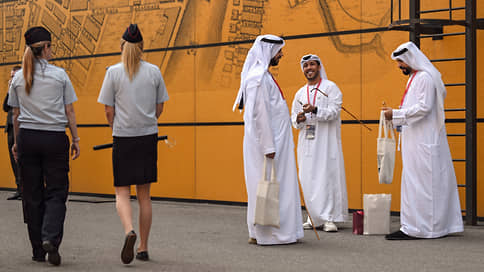how Russia negotiates infrastructure for new foreign trade
[ad_1]

The shift of Russian foreign trade to countries that did not support the imposition of sanctions will require the creation of a parallel infrastructure to service trade flows – in the face of the risks of secondary sanctions, companies and banks focused on national markets will become counterparties of Russian business, participants in the SPIEF foreign economic sessions said. Technological cooperation will also shift to the east – its increase is expected primarily with China, as well as with the United Arab Emirates, which can become a hub for Russian companies to enter the markets of the Middle East.
SPIEF participants this year actually recognized the irreversibility of the change in the main trade flows and external economic relations, noting the growing demand for the relevant infrastructure – its creation under the conditions of sanctions is necessary to maintain “normal” conditions for mutual trade.
From foreign partners, the Russian authorities expect, first of all, to build up technological cooperation.
Trade with China is still growing at a high pace: since the beginning of the year, turnover has increased by 40.7%, to $93.7 billion, while not only exports from Russia are growing, but also imports of engineering and electronics products from China, participants of the country dialogue noted “Russia-China” (the Chinese side was represented by business and business associations). Deputy Minister of Industry Aleksey Gruzdev noted that Russia has risen from tenth to seventh place in the list of China’s largest trading partners, while the department expects to “improve the quality of industrial cooperation” (following the example of localizing the production of Chinese Haval cars) in shipbuilding, machine tool building, the chemical industry, pharmaceuticals, biotechnologies.
Turnover with the UAE, which has become another popular foreign trade destination for Russian business, grew by 68% last year, to $9 billion. sites in the UAE for export to the countries of the region. Negotiations are also underway with the country on creating a free trade zone with the EAEU and conducting mutual settlements in national currencies. UAE Minister of Economy Abdullah bin Touk al-Mari, in turn, said that the UAE is the largest investor in the Russian economy among the Arab countries, while representatives of 18 Emirati companies came to SPIEF.
In logistics, problems are gradually being solved: Russian companies are purchasing vessels to replace the departed transport operators (the market for the latter, according to Andrey Severilov, Chairman of the Board of Directors of FESCO, has become a “premium market”).
At the same time, the load on the Far Eastern ports continues to grow – the increase in container traffic through them this year amounted to 34%, in the north-west, on the contrary, there was a decline of minus 34%, Ruslan Davydov, acting head of the FCS, said. Now the Far Eastern ports account for almost 60% of cargo turnover, but, according to the estimates of transport companies, some recovery in cargo traffic is also observed in the ports in the Baltic, including against the backdrop of overloading the Eastern range of railways. The capacity of the Far Eastern ports is about 300 million tons, but the actual transshipment is about 230 million tons, added Aleksey Chekunkov, head of the Ministry for the Development of the Far East, coal accounts for 47%, but the share of its supplies is not growing, the share of container traffic is increasing.
Through cooperation with the BRICS countries, in turn, the Russian side is counting primarily on solving problems with the payment infrastructure – at the profile session, they discussed, in particular, the creation of a reinsurance pool, an alliance of rating agencies (international agencies withdrew ratings for the Russian Federation) and – again – increase in the turnover of trade in national currencies. According to VEB.RF senior banker Sergei Storchak, the state corporation also put forward the idea of creating an independent financial infrastructure within the association on the basis of such calculations. Against the backdrop of moving away from payments in dollars and euros (this is also due to problems with the use of correspondent accounts of Western banks), the share of the ruble in exports has already increased from 12% to 34%, the share of the yuan in the calculations for the export of Russian companies – from 0, 5% to 15%. In addition, the Russian side could contribute to the internationalization of the Indian rupee, including within the framework of the interbank mechanism of the BRICS countries, which “began to slip” during the covid, he suggested. The solution to the problem of secondary sanctions is to join the mechanism of banks focused on national economies, so it will be easier to agree on how to open correspondent accounts, maintain compliance, set limits, Mr. Storchak explained. In particular, in China separate financial structures were used for transactions with Iran.
[ad_2]
Source link






